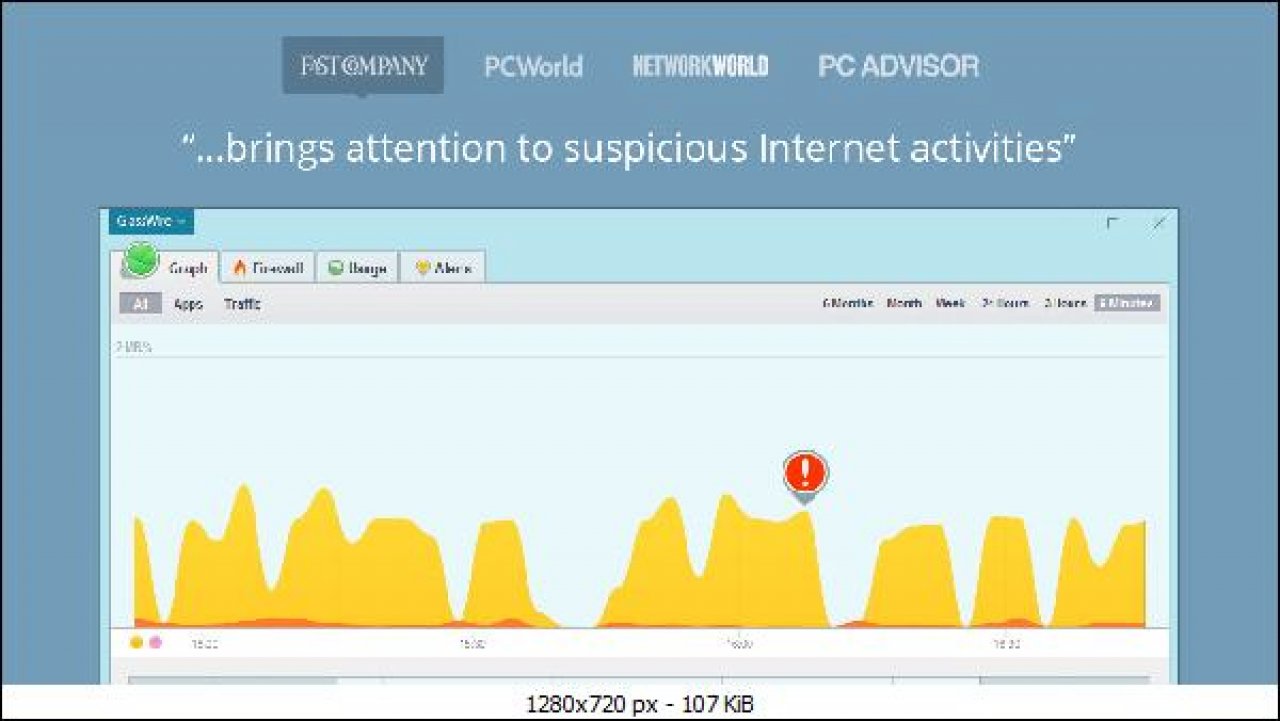Background/Introduction
When it comes to building computers, you'd be hard pressed to find any hardcore gamers that didn't customize their own souped-up gaming rigs, complete with flashing LED's, high-speed fans (or sleek water tubes), and as much processing power as the weight the desk can handle. However, when it comes to really understanding the network activity that originates from these gaming monstrosities, many gamers (and many IT professionals) don't have a clue. As an infosec professional for the past four years, I thought I had a solid understanding of the activity on my home network. However, GlassWire's new host-based firewall showed me a whole new world of activity that was happening behind the scenes, just under my fingertips. Without my knowledge, my laptop was averaging between twenty and thirty connected applications, ranging from anti-virus to web browsers to online game updates and Steam, all competing for valuable bandwidth. Fortunately, GlassWire allows ordinary users to block unwanted applications from stealing network resources while reserving those valuable bytes for lag-free gaming bliss.
While not a game (although still beautiful and fun to watch if you like staring at network activity and bandwidth charts), GlassWire provides an attractive visualization of network activity that both tech-savvy and non-tech-savvy personnel can appreciate, while its minimalistic flair allows users to maneuver the interface with ease, serving up loads of information in an easily understandable format.
When it comes to online game streaming, minor changes in network bandwidth can have significant impacts on the video quality and lag of the game. To make matters worse, within the 20-30 connected applications that are currently running on my laptop there includes basic Windows update services, Skype (I didn't even know I had Skype installed...), and many others which are all difficult to block using the standard Windows firewall or other freely available firewall applications. Where GlassWire really shines is its innovative visual depiction of network traffic in absolute real-time. In fact, the program will even alert you when new applications request network services and report applications that used network services while your system was idle (malware or pesky updates, anyone?).

Why GlassWire? What makes GlassWire unique?
More importantly, GlassWire allows users to view all of the inbound and outbound network activity on your computer while being able to block network access to specific applications as quick as a single click. That's right. GlassWire will notify you within seconds that a new application is sending or receiving traffic and allow you to stop the traffic with a single click. Traditional consumer-grade anti-virus and firewall applications operate by comparing hashes, or signatures, of known bad software or activity from massive virus database files against all of the files or traffic on a user's computer. However, because GlassWire shows you all of the networked applications running on your rig, you can quickly and easily identify any unauthorized network traffic, including malware that has not yet been identified by anti-virus programs.
Another noteworthy feature of GlassWire is the ability to set up usage alerts based on traffic consumption. If you're a gamer or heavy streamer, you've probably come close to or surpassed your ISP's bandwidth limitations, causing speed limiting or hefty overage fees. However, with usage monitoring, you can alert yourself when your computer consumes a certain amount of bandwidth within a specified time period. This can also be useful for gamers on the go that use hotspots or cell service plans to download updates or games while being able to block other heavy bandwidth consumers like Windows Update and Internet Explorer.

Extra Features
The paid version of GlassWire allows gamers to restrict network access to only a single application with a single click while providing remote access to GlassWire's information, the ability to monitor network activity across the entire Local Area Network, and even the option to monitor camera and mic access from applications or hackers. That being said, the features that are available in the free version alone make GlassWire an application worth looking into.
The Verdict
GlassWire's approach to information security and their unique visual take on firewall design makes their firewall an obvious choice for anyone who cares about their personal information and computer activity (uh, everyone?). There is truly nothing like GlassWire on the market right now that is as simple, clean, beneficial, and FREE. I highly recommend that gamers and normal computer users at least check it out (I've already installed it on all of my Windows machines in my house).
My biggest complaint about the software at the time of writing this review is that there is no trial for the paid features, which would certainly make pulling the trigger on a $120 firewall much easier. As cool as some of the paid features sound, I'm just not sure that casual gamers would benefit enough to justify the $120 price tag. Also, the fact that the software is not yet available on OSX, Linux, and mobile operating systems means that in many households, only a fraction of the networked devices can be monitored.
GlassWire is available now as a free download on Windows only via the Steam client or through one of three paid versions on sale now (Basic $44.10, Pro $74.25, and Elite $119.40) also available via Steam. While the free version should suffice for most casual computer users and gamers, the additional features in the paid versions would be beneficial for hardcore streamers and fast-paced online FPS games where a fraction of a second of lag can win or lose the match.


